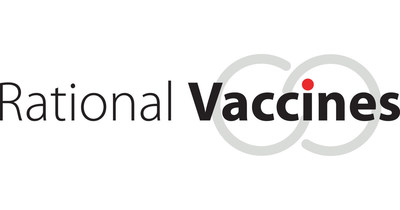Rational Vaccines, today announced preclinical research suggesting that the Company’s herpes simplex virus type 1 (HSV-1) vaccine candidate can protect against herpetic keratitis (HK), a leading infectious cause of blindness in developed countries.
|
WOBURN, Mass. and OXFORD, England, Dec. 28, 2021 /PRNewswire/ -- Rational Vaccines, a company focused on revolutionizing the treatment and prevention of herpes simplex viruses (HSV) to eradicate all forms of herpectic disease, today announced preclinical research suggesting that the Company's herpes simplex virus type 1 (HSV-1) vaccine candidate can protect against herpetic keratitis (HK), a leading infectious cause of blindness in developed countries. Rational Vaccines' RVX1001 Vaccine Candidate Protects Against HSV Ocular Infection in vivo
The research was conducted by a team of scientists from Louisiana State University (LSU) School of Veterinary Medicine led by Konstantin G. Kousoulas, PhD, professor of virology and biotechnology at LSU School of Veterinary Medicine, and vice president of scientific affairs at Rational Vaccines. The study, "Intramuscular Vaccination With the HSV-1(VC2) Live-Attenuated Vaccine Strain Confers Protection Against Viral Ocular Immunopathogenesis Associated With γδ T Cell Intracorneal Infiltration1" was published in Frontiers in Immunology and can be accessed at: https://bit.ly/3phI4DV. Dr. Kousoulas stated, "These data provide in vivo proof of concept for the prophylactic treatment of herpetic keratitis with our HSV-1 vaccine. We look forward to advancing RVx1001 toward the clinic, led by these exciting results, which provide new hope to eradicate one of the leading infectious causes of blindness around the world." Results showed that RVX1001 administered prophylactically protected mice against lethal ocular HSV-1 challenge and the development of herpetic keratitis. Of note, study data showed that intramuscular vaccination of mice with RVX-1001 resulted in γδ (gamma delta) T cell enhanced accumulation and reduction of infiltration neutrophils that results in substantial reduction of HSV ocular immunopathogenesis. Of particular note, γδ T cells are a distinct group of T cells that straddle the innate and adaptive arms of the immune system and are involved in response to pathogens, and tumors.2 People with compromised immune systems are particularly impacted by herpes. Herpetic keratitis induced by herpes simplex virus type 1 (HSV-1) ocular infection is a leading infectious cause of blindness. It is widely considered to be an immune-mediated condition where uncontrolled inflammatory events continue to damage the cornea during and after the resolution of infection.3 It is estimated that 50-90 percent of the world population is infected with HSV-1. 4-6 "HSV-1 is a heinous virus that mostly infects the world's children. It is not only one of the leading infectious causes of blindness in the developed world, it is now also responsible for nearly 40 percent of all new genital herpes infections as well," said Rational Vaccines' CEO Agustin Fernandez. "There are several studies showing links of HSV-1 infection with cognitive decline in infected individuals. We are proud of our work in advancing this candidate from Dr. Kousoulas as our HSV-1 prophylactic vaccine, as we work toward one day eradicating the herpes virus" In addition to Dr. Kousoulas, study co-authors included Rafiq Nabi, PhD, post-doctoral fellow, Therese M. Collantes, PhD, assistant professor, and Vladimir N. Chouljenko, PhD, research assistant professor, Department of Pathological Science, and Andrew C. Lewin, PhD, BVM&S, MRCVS, DACVO, assistant professor, Department of Veterinary Clinical Sciences. About Herpes Simplex Virus (HSV) While most herpes infections are asymptomatic, a significant number of people experience a range of symptoms that vary in frequency and severity. The most common symptoms for both types of herpes are painful blisters or ulcers. In addition, many patients experience debilitating neuralgia, skin splits, fissures, minor abrasions, erythema, fever, chills, and myalgias. Both viruses are most contagious during a symptomatic outbreak, but they can still be transmitted in the absence of symptoms. Beyond physical symptoms, herpes patients often suffer from social stigma and isolation because the infection is often transmitted sexually. Strong evidence has emerged that HSV-1 is a major risk factor for Alzheimer's Disease. There is no cure for herpes. There are no approved vaccines or immunotherapies or sufficiently reliable diagnostics currently available4. Antiviral medications developed in the 1970s can help to reduce the severity and frequency of symptoms but cannot cure the infection. About Rational Vaccines
SOURCE Rational Vaccines |





